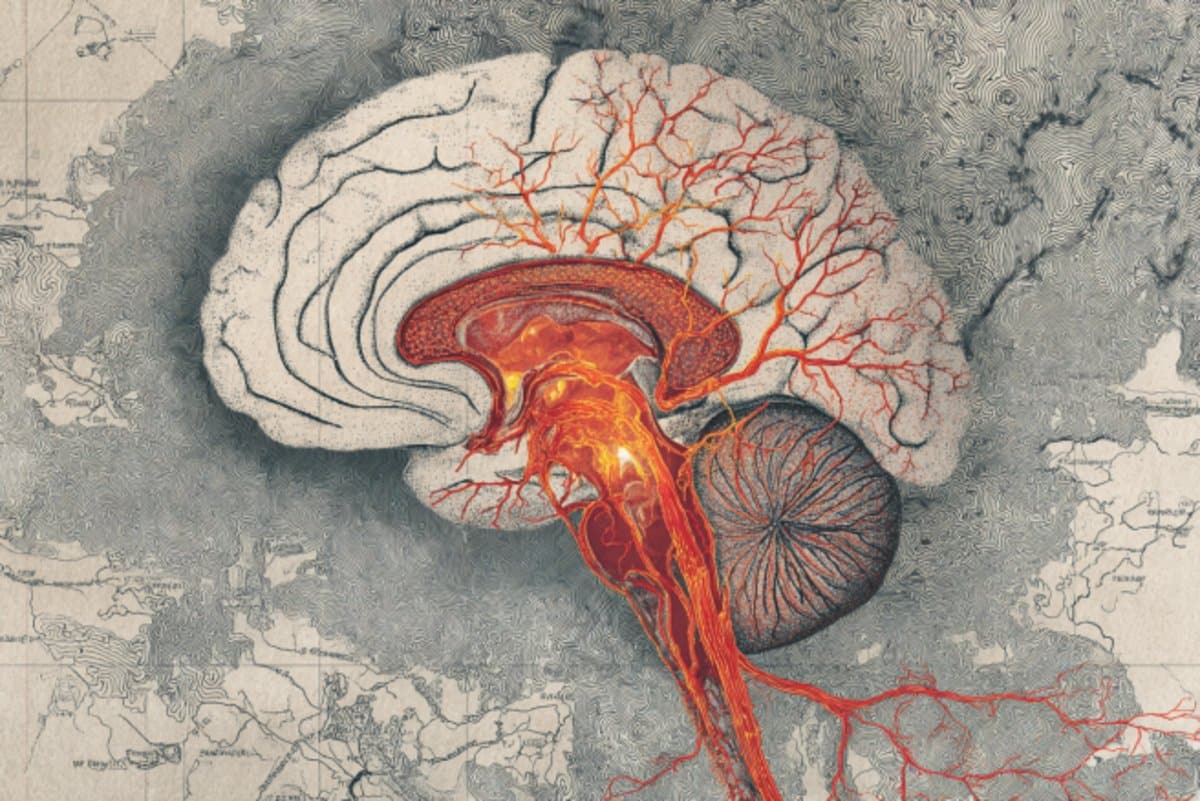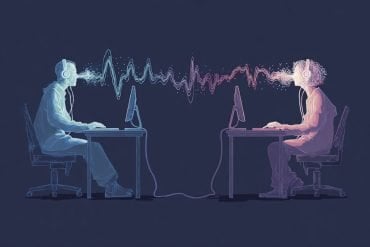Summary: Even after symptoms subside, people who’ve experienced depression may retain a heightened sensitivity to punishment and negative feedback. A new study found that the brain’s habenula—key to processing aversive signals—remains hyperactive in those with remitted depression, particularly during the anticipation of unpleasant outcomes.
These individuals also showed reduced connectivity between the habenula and dopamine-producing reward regions, suggesting persistent difficulty in regulating responses to stress. The findings may explain why up to 80% of people relapse within five years and could lead to better tools for identifying those still at risk.
Key Facts:
- Habenula Hyperactivity: People with remitted depression showed increased habenula activity during punishment anticipation.
- Reduced Reward Circuitry: Connectivity between the habenula and reward-related dopamine systems was diminished.
- Relapse Risk Insight: These persistent changes may help explain high relapse rates and inform future preventive therapies.
Source: Elsevier
Researchers have found that even after recovery, individuals who previously experienced depression may retain a heightened sensitivity to negative cues and face challenges in regulating responses to potential punishment.
The findings from the new study in Biological Psychiatry: Cognitive Neuroscience and Neuroimaging, published by Elsevier, could lead to better ways to identify individuals at risk for relapse and help develop more targeted interventions to improve long-term recovery and prevent future episodes of depression.
Depression is characterized by high relapse rates, with up to 80% of individuals experiencing a return of symptoms within five years, demonstrating that recovery does not always guarantee lasting resilience. To improve prevention, a better understanding of the underlying mechanisms that contribute to an individual’s vulnerability to relapse is needed.
Lead investigator Henricus G. Ruhé, MD, PhD, Radboud University Medical Center, Department of Psychiatry, and Donders Institute for Brain-Cognition and Behavior, Nijmegen, Netherlands, says, “The high relapse rates observed in depression suggest that there must be ongoing processes in the brain that continue to make individuals vulnerable to future episodes, even after symptoms have improved.
“Prior research has shown that people with depression often remain sensitive to punishment, even after remission. This led us to focus on aversive learning—a type of Pavlovian classical conditioning where a person learns to avoid a stimulus or behavior by associating it with an unpleasant outcome.
“We focused on the habenula—a small region of the brain involved in processing negative feedback. We wanted to find out whether abnormalities in this system persist even after someone has recovered from depressive symptoms.”
For this study, researchers used functional MRI (fMRI) to assess brain activity during an aversive learning task in 36 patients with recurrent depression and 27 healthy controls. Participants learned associations between a picture and an unpleasant bitter taste while undergoing the fMRI scan.
Imaging revealed evidence that individuals with remitted depression showed increased habenula activity specifically during the expectation of punishment, along with reduced connectivity between the habenula and the ventral tegmental area, an important midbrain nucleus responsible for producing the reward related neurotransmitter dopamine and an area thought to be regulated by habenula activity.
These patterns suggest a heightened sensitivity to negative cues and a reduced ability to regulate responses to potential punishment, even after symptoms have subsided.
Editor-in-Chief of Biological Psychiatry: Cognitive Neuroscience and Neuroimaging Cameron S. Carter, MD, University of California Irvine, concludes, “While much is known about how depression affects brain function during active illness, we have little understanding of whether these changes persist after recovery.
“This study highlights that even when individuals no longer show obvious symptoms of depression, they may still experience heightened sensitivity to negative cues, which could contribute to relapse risk.
“Understanding these lingering effects could lead to better ways to identify at-risk individuals and help develop more targeted interventions to improve long-term recovery and prevent future episodes of depression.”
About this depression and neuroscience research news
Author: Eileen Leahy
Source: Elsevier
Contact: Eileen Leahy – Elsevier
Image: The image is credited to Neuroscience News
Original Research: Open access.
“Aberrant Aversive Learning Signals in the Habenula in Remitted Patients with Recurrent Depression” by Henricus G. Ruhé et al. Biological Psychiatry: Cognitive Neuroscience and Neuroimaging
Abstract
Aberrant Aversive Learning Signals in the Habenula in Remitted Patients with Recurrent Depression
Background
Hypersensitivity to punishment is one of the core features of major depressive disorder. Hypersensitivity to punishment has been proposed to originate from aberrant aversive learning.
One of the key areas in aversive learning is the habenula. Although evidence for dysfunctional aversive learning in depressed patients is well established, it remains largely unexplored whether this dysfunction and its neural correlates persists during symptomatic remission of depression.
Methods
Functional MRI data from 36 medication-free remitted patients with recurrent major depressive disorder (MDD) and 27 healthy control subjects participating in a Pavlovian classical conditioning task, were assessed within a computational modeling framework to evaluate temporal difference related activation of the habenula during aversive learning.
Furthermore, generalized psychophysiological interaction analyses were performed to assess functional connectivity of the temporal difference signal with the habenula as an a priori region of interest.
Results
Relative to healthy controls, patients showed significantly increased temporal difference related aversive learning activation in the bilateral habenula. This activation was correlated with residual symptoms in the remitted MDD group. Furthermore, patients exhibited decreased functional connectivity between the habenula and the ventral tegmental area compared to controls.
Conclusions
The increased habenula activity during aversive learning, particularly during the expectation of punishment, along with decreased functional habenula-ventral tegmental area connectivity in remitted MDD patients, reflect hypersensitivity to, and/or inability to regulate, the impact of aversive environmental cues and punishment.
Trial Registration
NTR3768








